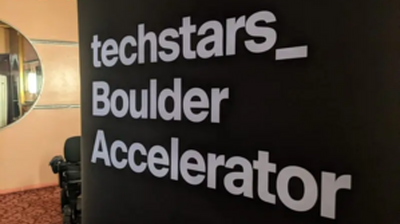Technology
Data centers are proliferating. So are concerns about their effects on Colorado’s environment.
COLORADO SPRINGS — The banks of black computer servers with twinkling amber and green lights sit in a large, nondescript, tan building, surrounded by a high, spiky steel fence on the edge of the city.
It is in computer banks like these that our collective memories reside. Our photos, our videos, documents, passwords, best routes to grandma, business information and our chats with ChatGPT. The memories keep piling.
And that is leading to a data center boom, with centers getting bigger, hungrier for power and thirstier for water, raising concerns about their impact on the environment and electric rates even as the sector looks to get greener and more efficient.
When Salt Lake City-based Novva Data Center purchased the Colorado Springs facility in 2021, it was a single building with 3 megawatts of capacity. The company’s plan is to add three more buildings with a total of 40 MW.
“The data center industry, it’s bursting,” said Wes Swenson, Novva’s CEO. “Automation, artificial intelligence, business continuity, autonomous driving, all these things are driving more demand for cloud and chips and data centers.”
The capacity of Front Range data centers is projected to triple to 301 megawatts in the next few years, according to the annual North American Data Center Report by the real estate management company JLL.
“Denver and Colorado Springs will see a rise in supply as providers continue to expand their power capabilities on existing sites along with new developments, which we will see come online in the next couple years,” the report said.
The largest of these new facilities, a so-called hyperscale center, is under construction by QTS Realty in Aurora. With a 160 MW load it will be Xcel Energy’s largest customer, eclipsing steel plants and mines.
The load for the center is “projected to potentially escalate up to 252 MW,” according to a filing with the Colorado Public Utilities Commission. A megawatt of generating capacity is enough to power 700 to 1,000 homes.
“We are generating data through everything we do — your washing machine, your refrigerator, your car generate data,” said Newsha Ajami, director of urban water policy with Stanford University’s Water in the West Initiative.
“What we are missing here is that this is a growing industry. We are at the inception of data centers,” Ajami said. “They are going to pop up everywhere.”
Big tension over luring new business and meeting climate goals
Even with a tripling of capacity, Colorado remains a secondary market for data centers and there are efforts underway to add incentives to bring the sector to the state.
Xcel Energy wants to give QTS a deeply discounted rate for its electricity, a move that must be approved by the PUC, and a bill in the legislature would grant new or expanding data centers a rebate on their state sales tax over the next seven years.
“This is part of diversifying your economy, improving the local tax base,” said Sen. Kevin Priola, a Henderson Democrat and co-sponsor of Senate Bill 85. “This is infrastructure, similar to building a port or a highway.”
But given the building boom underway, utility regulators and budget analysts question whether discounted electric rates or tax rebates are even needed.
“Colorado is already a pretty attractive place for a data center,” said Caroline Nutter, legislative coordinator for the nonprofit Colorado Fiscal Institute. “We just don’t need to spend taxpayer money to bring them here.”
The tax rebates would reduce state revenues by about $10 million in 2027, rising to $40 million in 2034, according to the bill’s fiscal note.
The first wave in data center building was around 2008 and then a second wave started with the advent of the public cloud in 2013, according to Jim Kerrigan, managing director of North American Data Centers, an industry real estate advisor.
“Now in 2023, we saw this thing called AI really come out,” Kerrigan said. “Just as the public cloud created a surge, you definitely have AI as being the same sort of disrupter.”
-

 Technology16h ago
Technology16h agoBreaking up Google? What a Chrome sell-off could mean for the digital world | The Express Tribune
-

 Technology1d ago
Technology1d agoAI harm is often behind the scenes and builds over time – a legal scholar explains how the law can adapt to respond
-

 Technology1d ago
Technology1d agoNewborn planet found orbiting young star, defying planet formation timeline | The Express Tribune
-

 Technology1d ago
Technology1d agoAwkwardness can hit in any social situation – here are a philosopher’s 5 strategies to navigate it with grace
-

 Technology1d ago
Technology1d agoNo need to overload your cranberry sauce with sugar this holiday season − a food scientist explains how to cook with fewer added sweeteners
-

 Technology1d ago
Technology1d agoTeslas are deadliest road vehicles despite safety features: study | The Express Tribune
-

 Technology2d ago
Technology2d agoThere Is a Solution to AI’s Existential Risk Problem
-

 Technology2d ago
Technology2d agoUS pushes to break up Google, calls for Chrome sell-off in major antitrust move | The Express Tribune



























